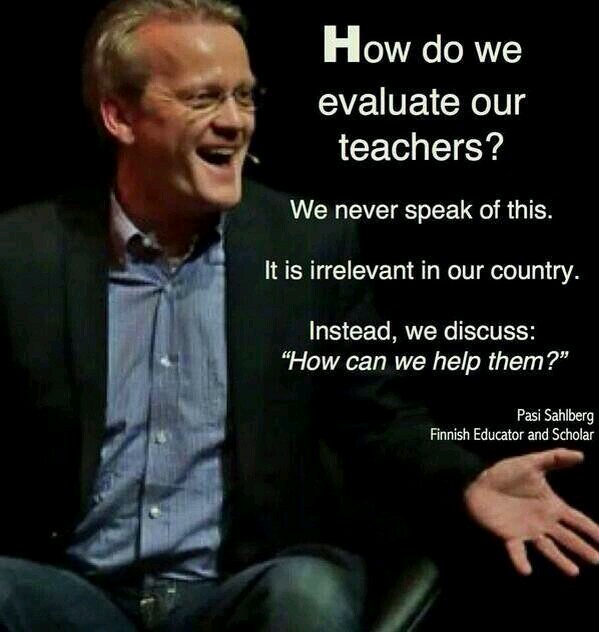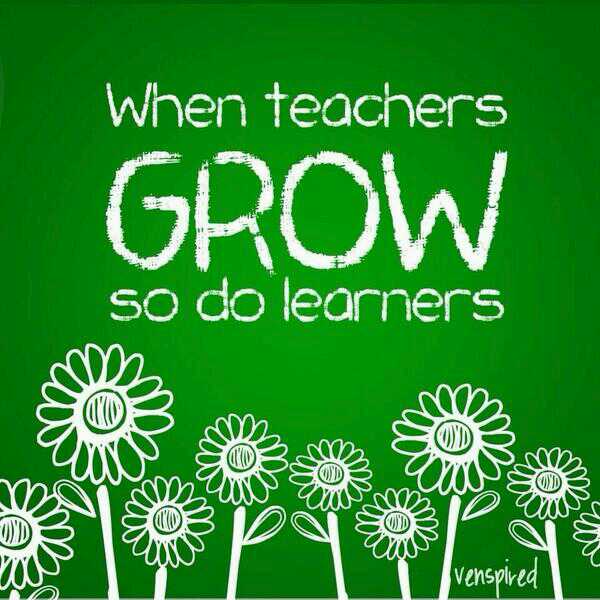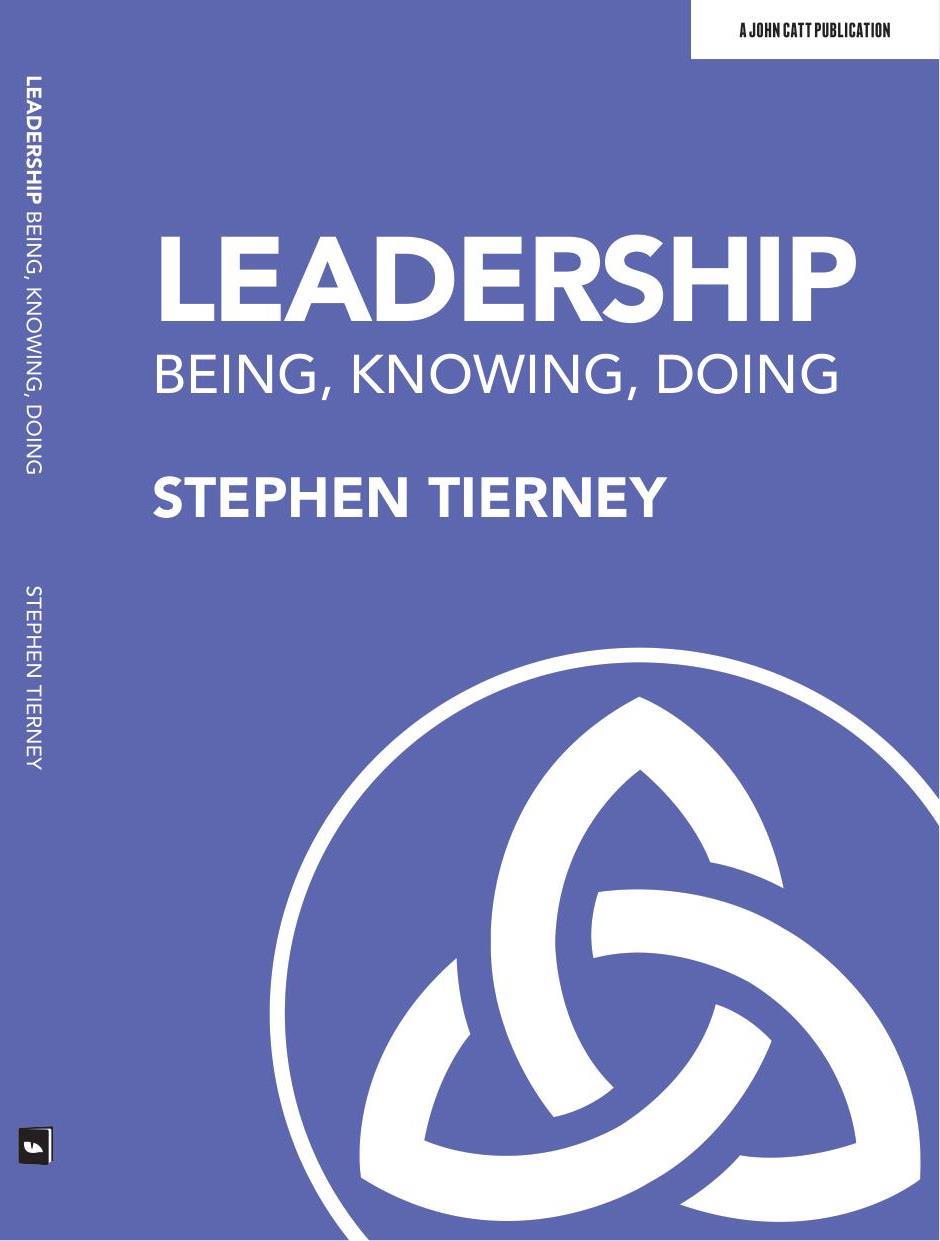This is turning out to be quite a weekend. In a forty eight hour period, I will have taken part in my first ever ResearchEd Conference and hosted #SLTchat, also for the very first time as well. I can’t see very much work being done on Monday.
This is a summary of the session I ran at ResearchEd in York on the 3rd May 2014 at Huntington School, hosted by the wonderful John Tomsett. In preparing the session I had absolutely no idea what was expected and possibly even less about what I was doing there. Having been invited to present by the equally wonderful David Weston I just sense this was another fine mess I’ve got myself into.
Professional Development is Changing
I started the session bemoaning the lack of strategic intent shown in the World of professional development of teachers. I’ve blogged before about the need to create a professional development curriculum for teachers, #Vis 2040 – Our Top 3 Priorities: Teacher Quality, Quality, Quality. Our current haphazard approach to the on-going development of teachers is nothing new, it has always been thus.
The idea behind the title came from a fabulous INSET presentation by David Wells on the great religious dilemma signified by Jerusalem & Babylon. It is a great analogy for the tension that exists with professional development.
How much should professional development be all-inclusive, about the school’s priorities, ensure a sense of identity and belonging, be centred round good practice, shares and passes on wisdom, bring a sense of order and certainty and gathers everyone together? This is Jerusalem, it is about the “we” and what holds us together. It is Sunday morning time.
Or should professional development contain a bit more Babylon, what interests “me”, personalised professional development, comfortably with different approaches, finds wisdom in the messiness of practice, accepts uncertainty and delights in the journey of discovery. It is Friday night which at times can be wild and exhilarating.
From Know Nodes to Wild Networks
We are moving from known nodes to wild networks. Both have their advantages and both have drawbacks. The opportunities available for professional development are now more varied than ever. No longer are staff waiting for the local authority course booklet to land in September before choosing a few courses to go on or not as the mood takes them. Teaching schools have formed a decentralised model of professional development delivery with a greater variety of options that are more responsive to teachers’ needs. However, teachers are now also taking responsibility for their own professional development via online courses, TeachMeets, ResearchEd, blogging and twitter. The last group of opportunities is producing an interesting Babylonian style wild CPD environment which cannot be controlled by schools or their leaders.
My Theory On Ideas
I didn’t feel I could present at ResearchEd without presenting a well-researched theory, so here is my Theory on Ideas:

I’m Proud to Announce My New Theory of Ideas (though Plato might just disagree)
First presented at #NTENRED 3rd May 2014
Distributing leadership is scary and yet without it there won’t be the fundamental changes required in taking teachers’ professional development to a new level. I’m not sure what the place midway between Jerusalem and Babylon is but I’ve decided to call it “Disciplined Innovation”. Disciplined innovation needs multiple leaders working within organisations if it is to succeed. Organisations can provide the much needed resources of time and additional knowledge and skills which teachers need. It will requires the commitment of: school leaders who are willing to relinquish control in favour of influence; staff willing to take on a leadership role outside the school’s staff structure and leaders within the system who can share and distribute expertise in order to generate more expertise. Leadership at all levels – system, school and class room – is the key to improved professional development.
Disciplined Innovation
The heart of the presentation focussed on five drivers that would together allow a different approach to professional development to take root in schools.
- Create Opportunities for People to Grow
- Give Time, Allow Time
- Enhance Teachers’ Research Skills
- Increase “Stickability” in Knowledge Transfer
- Evaluate, Evaluate, Evaluate
Create Opportunities for People to Grow
Apart from the actual building the capital assets of a school are pretty minimal. The assets we have are the people who work there, both the staff and students. Developing the knowledge, skills and sense of mission of our staff is how we grow our organisations. People are different, they need different opportunities to grow. How many different opportunities for growth or to take on a leadership responsibility do you provide within your organisation?
This is one of those areas, as a school, which I think we might actually excel in. Over time we have implemented and maintained a whole series of opportunities in addition to and beyond the formal staffing structure of the College:
Innovation Fellows apply for a two year professional development opportunity during which time they will take forward a significant research project of their choosing. We seek to appoint two per year so we have four at any one time. They have also supported other colleagues to develop their practice but we are beginning to look at changing this to involvement in more of a lesson study type approach.
R& D Communities consist of up to eight staff who have decided to focus on a particular issue of shared interest that they wish to implement or refine. For each person in the community funding of a £100 is given to support the project. If you are interested in finding out more the blog post about this is Upside Down CPD: R and D Communities.
System Redesign TLRs are given for a fixed time period, between one and three years, to take forward a project or programme on behalf of the College. For example, two System Redesign TLRs for this year are focussed on cross phase transition projects with associated primary schools.
There are a number of voluntary professional development programmes that run on Monday evenings during the year that teachers can opt into. A leadership programme and one focussed on developing outstanding teaching and learning #OutstandingIn10Plus10.
Give Time, Allow Time
I’m not sure what the question is but ask any teacher what the problem is and a lack of time is pretty high up the list if not in first place. As leaders we have to create time to enable things to happen.
Our innovation fellows have reduced contact time of between a day a week to a day a fortnight to engage in their work. The leaders of the R&D Communities also have a reduced teaching commitment of one period a fortnight (we have 100 minute lessons) and so do staff awarded System Redesign TLRs. Each R&D Community may request Cover vouchers that can be traded in to release teachers to take part in planning meetings or observe each other as part of a lesson study approach.
I’ve long since stopped worrying about the cost of providing this time.
The work they do is so good that I’m more worried about the cost to the school if this work grinds to a halt.
The biggest challenge I’ve faced as a leader is allowing time for ideas and innovations to take hold and really embed. This is both nurture and nature challenge for me – the environment we live in is fast paced and wants change now. People never seem to tell me how patient I am (because I’m not, I’m a real hurry up type of person).
Innovations, ideas and people need time together to embed and produce the much sought improvements. Doing fewer things better actually leads to improved outcomes rather than the illusion of improvement through everyone looking busy but actually getting nowhere. Leaders need to hold their nerve and wait once change is introduced.
Enhance Teachers’ Research Skills
The people with the greatest knowledge about research and the best research skills aren’t usually found in the class room. These soft skills are required by teachers to produce hard edged outcomes as it’s the people in the class room who are most able to effect change. A two pronged approach is needed here. Connect class room teachers with full time researchers and look to develop teachers’ knowledge of research and research skills.
Ross McGill (@TeacherToolkit) and I devised the #5MinResearchPlan to help give a structure to teachers’ research in the class room. It’s by no means perfect, just simply another step forward along the road to Disciplined Innovation.
Evaluate, Evaluate, Evaluate
Evaluation is the real Achilles Heel of the profession. For too long we have been used to determining good and best practice as what we do. This good and best practice then gets passed on without any real scrutiny – more disciplined innovation not any old innovation is what is required. Whilst teachers may never have the time to undertake full scale research within their class rooms, their approach to innovation and new ideas needs to be much more sceptical and discerning. This is a way of thinking that can be enhanced as teachers’ skills as researchers improve and we connect better with institutions and individuals who are more research savvy.

Tom Bennett’s Blog on VAK can be found here: World War VAK isn’t Over Yet
If you doubt the need for more evaluation then just ask Tom Bennett about Brain Gym or the benefits of a VAK approach in your teaching! It would be interesting to consider, for a moment, what are the current innovations you are involved with – either leading or implementing – how sure are you of the evidence behind them? How are you evaluating them?
Please don’t think for a second I’m speaking from a position of strength, I just know we need to up our game in this area. Our recent CPD Audit carried out as part of our membership of the National Teacher Enquiry Network (NTEN) really brought this home. The slow but steady introduction of their Lesson Study Model is already beginning to change both our mindset and practice in this area. If you haven’t yet joined NTEN, it is well worth considering.
Increase “Stickability” in Knowledge Transfer
Finally but by no means least is once we do have evidence about what works how do we transfer it from one person to another or one institution to another. This is a real problem as whilst we are great at sending information (this blog post is an example, as was the presentation) the real challnge is getting it to stick to the intended recipient in such a way that it is useful and beneficial to them in terms of improving practice.
Maybe part of the answer is in the way we are designing professional development in our schools. The number of people prepared to give up a bank holiday Saturday to attend ResearchEd in York, who blog out their thoughts in their own time or go to TeachMeets is quite inspiring. David Hargreaves slides on the benefits of Joint Practice Development as opposed to Sharing Good Practice may well help show the way ahead. Is Joint Practice Development maybe at the heart of Disciplined Innovation, that midway point between Jerusalem & Babylon?
With thanks to everyone involved in ResearchEd York for a great day.
A copy of the full presentation can be downloaded here:
The Babylon & Jerusalem of Professional Development
Postscript:
At St. Mary’s Catholic College and Christ the King Catholic Primary School we are only part way along the long road to Disciplined Innovation. I’m hoping that when my new Executive Headteacher role really kicks in, this September, I can become the “Professional Capital Building Champion” and the “Chief Architect of Disciplined Innovation” that our federation requires.













Excellent. Thank you!
Posted by Debbie Hepplewhite | May 4, 2014, 8:32 pmReblogged this on Primary Blogging.
Posted by Tim Taylor | May 5, 2014, 9:10 pmReblogged this on Education: the sacred and the profane.
Posted by solocontrotutti | May 8, 2014, 6:57 pmReblogged this on The BB2 Collaborative.
Posted by BB2 | May 8, 2014, 7:24 pm